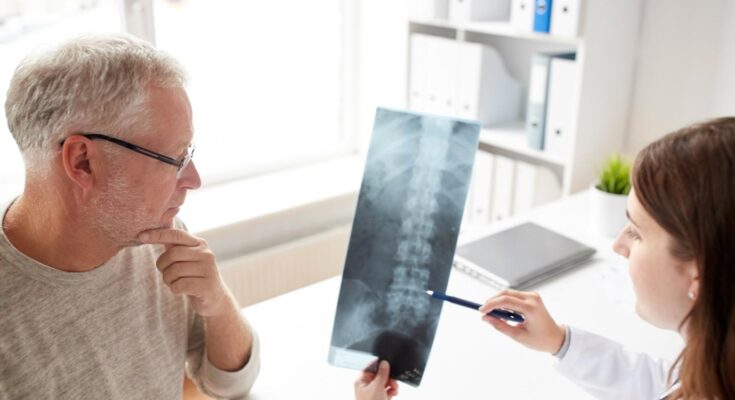Are you suffering from back pain?
Between bulging vs herniated discs, it can be tough to tell which is which and why it may be happening to you. Luckily, if you’re reading this article, you’ve come to the right place to learn all about back pain and how to treat it.
First, let’s break down what exactly is going on in your spine and how it affects you.
What Is a Bulging Disc?
A bulging disc refers to a type of injury or condition that affects the spine. It occurs when the intervertebral disc, which is the cushion that lies between two vertebrae and helps to absorb shock, bulges out of its normal position. This bulging can produce pressure on the surrounding tissues, nerves, and organs.
What Is a Herniated Disc?
A herniated disc, also referred to as a slipped or ruptured disc, occurs when an intervertebral disc in the spine has ruptured, and the inner disc material is pushing out of its normal confines.
Herniated discs are most likely to occur in the lumbar region, affect people who are older than 30, and are responsible for sciatica-like symptoms. They are caused by wear and tear of the disc tissue, age-related degeneration, trauma, or excessive strain.
Differences in Symptoms
A bulging disc is caused by the disc moving out of its normal alignment and pressing against nearby nerves or tissues. Symptoms of a bulging disc can include anything from lower back pain to numbness or tingling of the extremities.
Herniated discs, on the other hand, occur when the disc is injured or deteriorates over time, causing the rubber center of the disc to break out and put pressure on nearby nerves or tissue.
Symptoms can range from mild to severe, depending on the location and size of the herniation, but typically will exhibit more severe pain, muscle weakness, and even loss of motor function.
Differences in Diagnosis
A bulging disc is a common condition that is seen in many MRI results. It occurs when the disc begins to expand due to increased pressure from the weight and additional pressures from our daily movements.
A herniated disc, while still caused by extra weight or a combination of excessive pressure, involves a more serious disc tear that releases the inner material, leading to increased pressure on the nearby nerve.
Differences in Treatment Options
For a bulging disc, conservative treatments like rest, anti-inflammatory medications, physical therapy, and steroid injections may be the most effective treatment and should always be attempted first. Additionally, a doctor may recommend other therapeutic treatments.
A herniated disc may require more intensive treatment, such as cortisone injections or surgery in the most extreme cases. Surgery is usually only reserved for herniated discs that are pressing upon the nerve root or causing severe symptoms.
It is also important to note that if a person has developed a herniated disc due to physical activity or lifestyle, then the activities should be avoided as much as possible to help avoid further damage to the disc.
Learn the Differences Between Bulging vs Herniated
Bulging vs herniated discs are both serious disorders that can cause chronic pain and symptoms. It is crucial to have an accurate diagnosis to ensure you receive the appropriate treatment. Reach out to a medical expert for advice.
Did you find this article helpful? Check out the rest of our blog for more!


